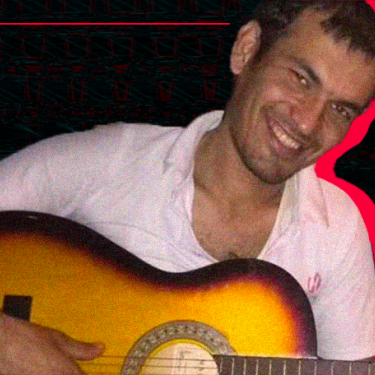Turkmenistan: a country persecuting its last journalists to death

On 13 August, former Radio Azatlyk correspondent Khudayberdy Allashov succumbed after eight years of torture and harassment, all because he spent three months working for an independent media. RSF is outraged by the treatment of journalists in this Central Asian dictatorship, one of the most closed off countries in the world, and calls on international institutions to put an end to the persecution of the few remaining media professionals in Turkmenistan.
“We won't leave you alone until it takes you to the grave,” Turkmen police officers threatened Khudayberdy Allashov in 2019. On 13 August, the police got their way: the former journalist, aged 35, succumbed after eight years of persecution. There is no cause of death listed on his death certificate, but Allashov had developed serious health problems after his first arrest in 2016. It was impossible for him to receive treatment, as medical facilities refused to help a target of the authorities. Allashov was also forbidden to leave his hometown, the northern city of Konye-Urgench.
“Khudayberdy Allashov should never have lived through this nightmare. RSF is shocked by his death and offers its sincerest condolences to his family. Under the Turkmen dictatorship, the lives of journalists and former journalists – and the lives of their families – continue to be at risk because of their work. RSF urges all international institutions to force President Serdar Berdimuhamedow to put an end to their persecution and torture.
In autumn 2016, Allashov began working in secret as a correspondent for Radio Azatlyk, the Turkmen service of the American media Radio Free Europe / Radio Liberty (RFE/RL). In December, he and his mother were arrested on the ridiculous charge of possessing chewing tobacco. Released after 74 days behind bars thanks to international pressure on his case, they were both given a suspended three-year prison sentence. Allashov was tortured for two and a half months, receiving electric shocks and blows that permanently damaged his kidneys.
This experience forced Allashov to give up journalism, yet the authorities continued to persecute him and his family. Harassed and under constant surveillance, Allashov was subjected to extremely violent interrogations in October 2019 and again in 2020. In December 2023, he spent 15 days in Turkmen jails before being released thanks to international pressure. “He came out covered in blood,” says Farruh Yusupov, director of RFE/RL’s Turkmen service, who did not see Allashov firsthand but was familiar with his condition from government sources. “Khudayberdy was a courageous journalist who only wanted the best for his country.”
Horrific conditions of detention
Allashov's appalling, unjust fate is not a stand-alone incident. Radio Azatlyk correspondent Ogulsapar Muradova was arrested in June 2006 along with two human rights activists while working on a documentary for the French TV channel France 2, and died in prison in September of the same year after suffering particularly cruel treatment. Her co-accused were released from their hellish detention almost seven years later and suffered serious health problems due to their experience.
It is unlikely that Turkmen prisons have improved since then. In June, journalist Nurgeldy Halykov was released after serving a four-year prison sentence in a very concerning state of health. Halykov was arrested on the pretext of fraud after he sent a photo from social media to the exiled outlet Turkmen.news. He remains under surveillance and is obliged to report to the local police office every week.
Constant surveillance
Physical assaults, arbitrary arrests, wiretapping, threatening relatives and sources – RSF has documented at least twenty attacks due to the work of the famous 76-year-old photojournalist Soltan Achilova. Since the beginning of her career in 2006, Achilova has reported on the day-to-day difficulties facing Turkmen citizens. The only reporter openly working openly in a country that forces its journalists underground, she published a video on 11 July condemning the harassment targeting not just Achilova, but her family and the exiled media with which she regularly collaborates, Chronicles of Turkmenistan. Achilova was prevented from leaving the country on 18 November 2023, when she was set to travel to Switzerland to receive the Martin Ennals Award that she won in 2021.
Achilova’s former colleague from Radio Azatlyk, Rovshen Yazmuhammedov, imprisoned in 2013, is also still subject to police pressure and banned from leaving the country. Despite the fact that he has given up journalism, his mother is still forbidden from visiting her other children abroad. She was denied boarding a flight on 24 February despite having a valid EU visa.
